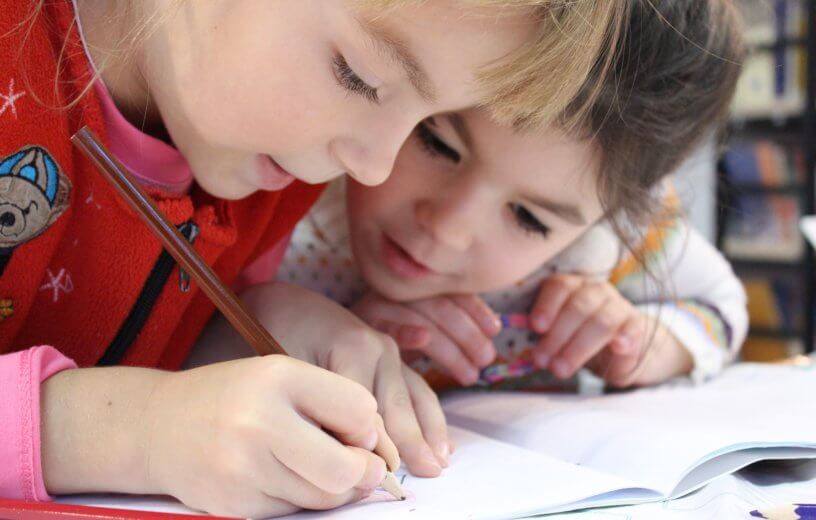TRONDHEIM, Norway — Pens, paper, and notebooks used to be mainstays in classrooms all over the world. Over the past 15 years or so, however, all those binders and composition notebooks have slowly but surely been replaced by laptops and tablets. The convenience and helpfulness of modern technology over pen and paper is undeniable, but a new study finds good old fashioned writing by hand is more conducive to learning and memory formation.
Researchers at the Norwegian University of Science and Technology (NTNU) say that both children and adults learn more and remember things more efficiently when writing by hand rather than a keyboard. The study’s author believes all modern children should receive at least some instruction in handwriting.
Writing stimulates the brain
This isn’t the first time researchers at NTNU have investigated this topic, but their most recent findings are perhaps the most convincing. This time around, the brain activity of 12 young adults and 12 children was assessed on two occasions — once while writing in a notebook, and again while typing on a keyboard.
EEGs measure electrical brain activity and each participant was fitted with a 250-electrode hood on their head. Whenever the human mind is active, it produces electrical impulses. Those electrodes allowed the research team to track brain activity while writing or typing. Each subject was assessed for a total of 45 minutes, with researchers gathering a staggering 500 data points per second.
The results were quite clear. Both adolescent and adult brains are much more active while writing in comparison to typing.
“The use of pen and paper gives the brain more ‘hooks’ to hang your memories on. Writing by hand creates much more activity in the sensorimotor parts of the brain. A lot of senses are activated by pressing the pen on paper, seeing the letters you write and hearing the sound you make while writing. These sense experiences create contact between different parts of the brain and open the brain up for learning. We both learn better and remember better,” Professor Audrey van der Meer explains in a media release.
Too much technology in schools?
Professor van der Meer says it is essential to a child’s development to both write and draw from an early age, especially within an educational environment. Of course, that’s not the direction the world is heading in right now. Children, and even infants in many cases, are entering the world of smartphones, tablets, and laptops for recreation at younger and younger ages.
Similarly, schools all over the world are transitioning toward digital learning practices. While such technological approaches to learning aren’t totally without merit, van der Meer says teachers should abandon handwriting.
“Given the development of the last several years, we risk having one or more generations lose the ability to write by hand. Our research and that of others show that this would be a very unfortunate consequence of increased digital activity,” she adds. “Some schools in Norway have become completely digital and skip handwriting training altogether. Finnish schools are even more digitized than in Norway. Very few schools offer any handwriting training at all.”
Writing by hand worth the time and effort
Keyboards are appealing for kids because they’re easier to master and create content on. But researchers say truly beneficial practices, just like anything else in life worth doing, are rarely easy.
“Learning to write by hand is a bit slower process, but it’s important for children to go through the tiring phase of learning to write by hand. The intricate hand movements and the shaping of letters are beneficial in several ways. If you use a keyboard, you use the same movement for each letter. Writing by hand requires control of your fine motor skills and senses. It’s important to put the brain in a learning state as often as possible. I would use a keyboard to write an essay, but I’d take notes by hand during a lecture,” van der Meer contends.
“The brain has evolved over thousands of years. It has evolved to be able to take action and navigate appropriate behaviour. In order for the brain to develop in the best possible way, we need to use it for what it’s best at. We need to live an authentic life. We have to use all our senses, be outside, experience all kinds of weather and meet other people. If we don’t challenge our brain, it can’t reach its full potential. And that can impact school performance,” she concludes.
The study is published in Frontiers in Psychology.
Like studies? Follow us on Facebook!
